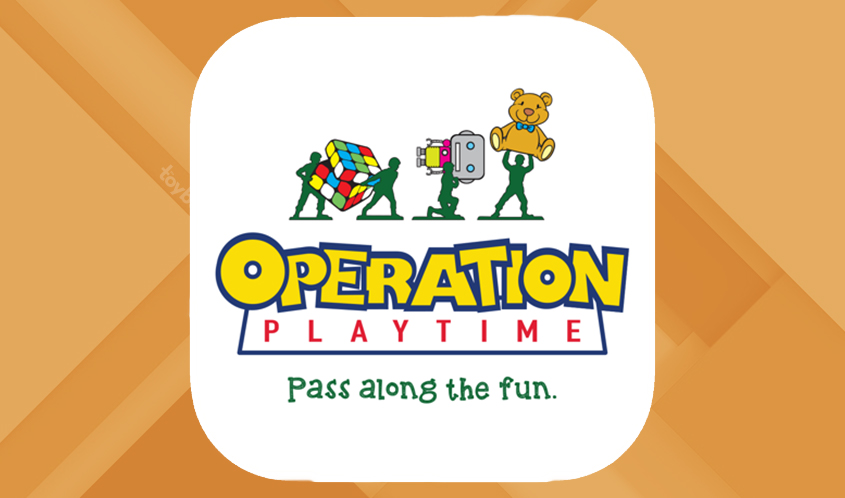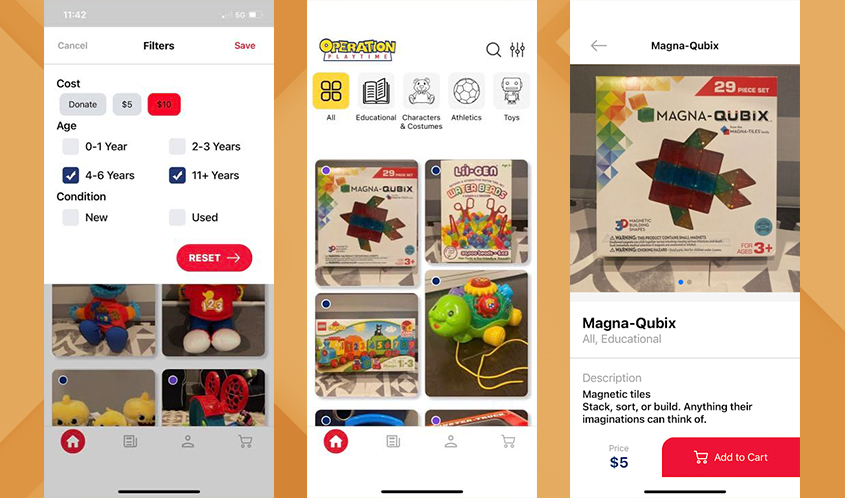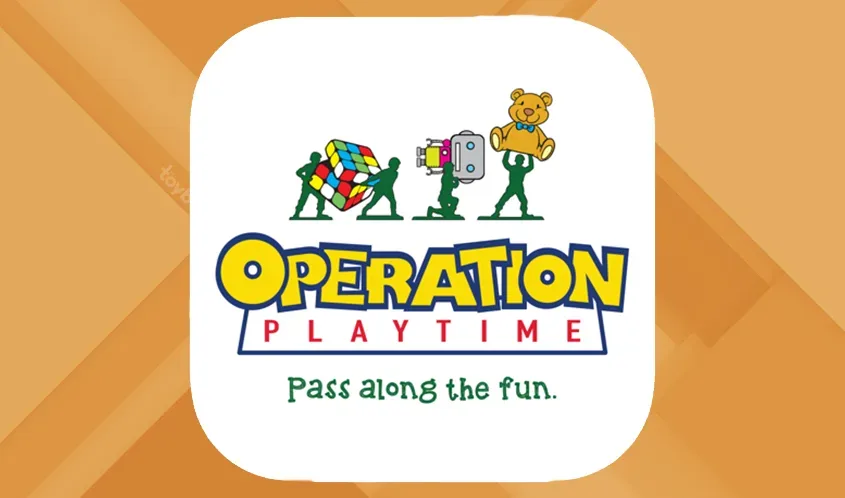
Kids eventually grow out of toys. But toys, unlike kids, can’t just up-and-leave when the time comes to move on. That’s where Operation Playtime comes in, the app designed to solve the age-old problem of “what do I do with all these toys?” Operation Playtime makes buying, re-selling, and donating toys simple and affordable.
The app was inspired by none other than Toy Story 3, particularly the scene in which Andy’s toys invented a plan called “Operation Playtime” to convince a college-bound Andy to play with them before he leaves.
“During [the] scene where the toys lamented that they had no one to play with, I glanced around the living room at all of my kids’ old toys,” says Brian DePass, the app’s creator. “I thought there has to be a way for parents to pass along used toys directly to kids, hospitals, or daycare centers that need them. So, Operation Playtime was born.”
Operation Playtime accepts virtually any toy for its platform. The app screens toys based on their description, condition, and user-uploaded photos to verify their quality. There is no limit as to how many toys users can buy, sell, or donate: The goal is to get the toys into the hands of as many kids and families as needed. The only conditions are that the toy is new-to-gently used, with a maximum buying and re-selling price of $20.
“With millions of people across the U.S. out of work and the latest fads being so expensive, limiting the price to $20 is a great way to make sure that really great toys can end up in the hands of families who need them,” says Operation Playtime representative Cameron Patterson. “This app is about helping to foster the spirit of giving and to help families everywhere avoid the worry of providing their kids with fun.”

The process for listing a toy is straightforward. The user takes a well-lit photo of the toy they want to upload and creates a name and description for shoppers. Next, they can choose to either set the price at $5, $10, $15, or $20, or to list the toy as a donation (in which case, it would be free). Operation Playtime strongly encourages users to wipe down all toys for sanitation and safety in compliance with COVID-19 guidelines. Once the user has completed all these steps, the listing will appear on the app for parents and buyers to check out. There are toys for all ages, from infants to teenagers, on the app.
Operation Playtime also includes a messaging system for buyers and sellers to make contact, negotiate terms, and share addresses for shipping. Users can share a P.O. Box or other location if they choose not to share their home address for privacy concerns. Buyers are responsible for shipping fees. In the case of a donation, the shipping fee is the sole cost for the seller.
In addition to affordability and feasibility, Operation Playtime was made with sustainability in mind. “So many toys come with mountains of single-use plastics: wrappers, zip ties, sticker sheets, packaging… When a toy is resold, however, that packaging is already gone,” Patterson says. “Because of that, we’re already helping to cut down on how much toy waste ends up in landfills. Resales are great for keeping the toys themselves out of landfills and cutting down on costs.”
The app itself is free, with no hidden sign-up fees. The goal is to make Operation Playtime an app by parents, for parents — and most importantly, to give toys a loving home and a new best friend.
Operation Playtime is available for download on the App Store and Google Play.

